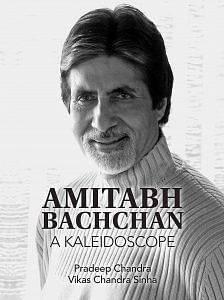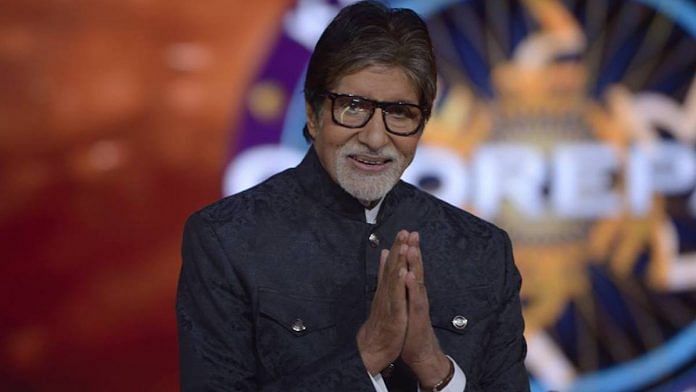It sounds like a fairy tale, but it was an unbelievable twist of fate that Bachchan was unable to get a job at the All India Radio (AIR). Ameen Sayani was the undisputed king of radio back in the ’60s, with his legendary show Binaca Geetmala. Before trying his luck in films, Amitabh wanted to become a radio presenter. He made his way to the AIR studio where Sayani was at work, in order to audition for a job. The radio presenter was just too busy to spare any time for the ‘thin man’ who tried a few times to meet him and then gave up. Sayani remembers watching Anand and liking Bachchan’s voice tremendously. Even then, he was not able to place Bachchan as the ‘thin man’ who had tried to meet him for a job. After attaining stardom, Bachchan spoke about his woes at the AIR studio. It was then that Sayani realized the identity of the ‘thin man’ he had been unable to spare time for. He believes that it was a lucky break for both him and Amitabh. Sayani jocularly said in an interview, ‘I would have been on the streets and he would have got so much work on radio that Indian cinema would have lost its biggest star.’
It is no wonder that Bachchan first appeared in the film industry not as an actor but as a voice over artist. Bhuvan Shome (1969) was a small-budget movie that would be the harbinger of the new-age parallel cinema and catapult director Mrinal Sen into international recognition. From then on, Mrinal-da would be known for making hard-hitting realistic movies, some of which were overtly political with Marxist leanings. Bhuvan Shome not only launched the ‘art’ cinema movement, but it also launched the career of Indian cinema’s greatest ‘commercial’ star—ironies never cease to exist. Jaya Bachchan recounts asking Mrinal-da about Bachchan’s work in Bhuvan Shome. She recalls what he said, ‘His voice is ok … but he will never make it as an actor.’ But he did make it as an actor. And his distinctive voice played a large part.
India has a hallowed tradition of kavi sammelans and mushairas, where poets recite their work. Bachchan has seen this tradition from close quarters and has seen his great poet-father at many a gathering. His recitation of his father’s most famous poetic work, Madhushala, brings out the ethereal quality of his voice. Everyone who has heard Bachchan recite his father’s poem has come back wowed by his ability to tease out emotions from every word.
Also read: Harivansh Rai Bachchan — a critic of religiosity, class system and clingy lovers
Bachchan’s aural control leaves voice artists such as Chetan Shashitlal and Ninad Kamat, legends in the advertising world, in awe. Shashitlal observes, ‘Mr Bachchan knows how to use his words and he knows what his voice is all about. His voice is a case study—it has evolved over time. In Sholay, it wasn’t as deep as in Laawaris. Even when he shouts, he is completely in control.’ Kamat adds, ‘He has a voice culture that he has purposefully developed over the years.’ Both these artists have dubbed in Bachchan’s voice for commercials whenever Bachchan was not available.
***
Unsurprisingly, Bachchan tops the list of actors whose dialogues are most remembered. He is followed by Shah Rukh Khan and Raaj Kumar. The latter’s inclusion in the list, even though much of his film repertoire is largely forgotten, is a reminder of how the film audience connects to a powerful voice.
Hum jahan khade ho jaate hain, line wahin se shuru hoti hain (Kaalia) (The queue starts from wherever I stand)
Main aaj bhi pheke hue paise nahin uthata (Deewaar) (Even today, I don’t take money which is thrown at me)
Tumhara naam kya hai, Basanti? (Sholay) (What is your name, Basanti?)
I can talk English, I can walk English, I can laugh English, because English is a very phunny language (Namak Halaal)
Main aur meri tanhaai—aksar ye baatein karte hain (Silsila) (I sometimes talk to my solitude)
Jo mard hota hai, use dard nahin hota (Mard) (Real men don’t experience pain)
Rishte mein to hum tumhare baap lagte hain, naam hai Shahenshah
(Shahenshah) (I am your father by relation, but my name is Shahenshah)
Hamare desh mein kaam dhoondna bhi ek kaam hai (Shakti) (In our country, it is a job to look for a job)
Yeh jeena bhi koi jeena hai, Lallu? (Mr. Natwarlal) (Is this the kind of life you want, Lallu?)
Mujhe jo sahi lagta hai wo main karta hu, fir chahe wo samaj ke khilaf ho, police kanoon ke khilaf ho, bhagwaan ke khilaf ho, ya fir poore system ke khilaf kyun na ho (Sarkar) (I do whatever I think is right, even if it is against society, police, law, God or the whole system)
The aforementioned selection showcases some of the most famous (or rather, iconic) dialogues of Amitabh. Most of these have entered the popular lexicon and are used as some sort of everyday expressions by many. A cursory glance through the selection shows that it is an eclectic bunch. There are dialogues of power, self-respect, romance and comedy in the lot. Bachchan’s ability to introduce the comic in the most serious of dialogues and to elevate the most banal of dialogues with strength or depth is what sets him apart. A majority of these dialogues are from the Bachchan films from the ’70s and ’80s, and he believes that is a tribute to the writers of that era. Bachchan remarks that even today, he is asked to recite dialogues from the ’70s and ’80s, rather than from his recent films. He believes that the value of the written word has diminished over the years. Or, it may just be that the audience likes to remember his words when he was at his popular best.
After all, the most famous Bachchan dialogue of all time and across generations is not even from a film. ‘Lock kiya jai?’ (Should I lock your answer?): three simple words that he used to gently nudge the contestant on his popular quiz show on TV, Kaun Banega Crorepati. Bachchan combined concern, sternness and a dash of humour in these three words. And it had a nation in thrall.
Also read: Abhimaan, the timeless classic, had shades of Amitabh & Jaya Bachchan’s real lives
 This excerpt from Amitabh Bachchan: A Kaleidoscope by Pradeep Chandra and Vikas Chandra Sinha has been published with permission from Niyogi Books.
This excerpt from Amitabh Bachchan: A Kaleidoscope by Pradeep Chandra and Vikas Chandra Sinha has been published with permission from Niyogi Books.



